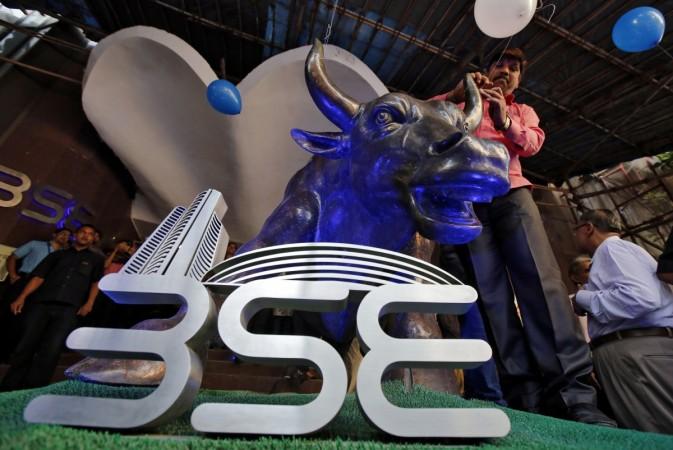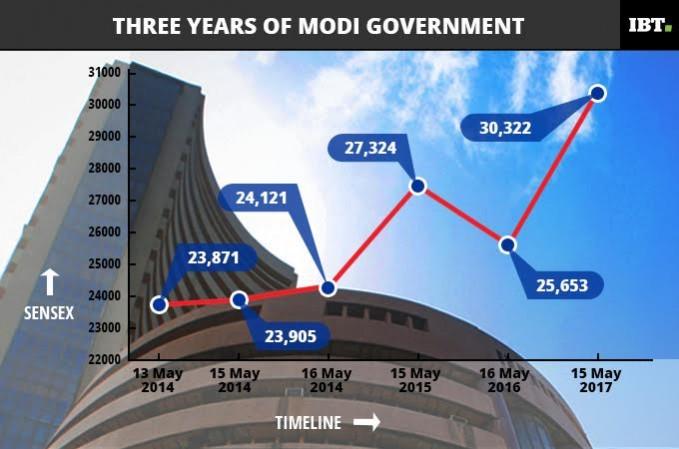
The mad selloff on Tuesday exposed the shaky legs of the markets once again. The Indian equities fell nearly 3 percent, wiping out more than five lakh crore of investor wealth. No one should be unreasonably nerved by it as, of course, the Sensex and Nifty will bounce back -- unwittingly though.
However, a little inquiry into the reasons of the crash will unravel some quirky aspects of the system of wealth creation that has been built in the last four decades of neo-liberalism.
The latest plunge was triggered by a historic sell-off in the US equities on Monday. As it's been happily said over and over again in the last several decades, when the US markets catch a cold, the Asian bourses sneeze. Let's forget about that, and look at what triggered that portentous cold and sneeze in the Dow Jones.
The main reason of that psychotic sell-off was actually a positive news. That the US job markets were upbeat, unemployment was near historic lows and the outlook for wages growth in the country was bright. In fact, the positive jobs data had come on the back of a series of robust macro economic data.
However, the good jobs data touched raw nerves in the Wall Street. The reasoning was that an increase in wages will push up inflation, which in turn will force the Federal Reserve to raise interest rates. Of course higher interest rates will increase the borrowing costs of companies. Hence the sell-off. Sound logic, no questions about it.
Class struggle theory is relevant today
But it only goes to prove that the Marxian theory of class struggle is relevant today. Because, in its philosophical essence, the rout in the markets manifested the inverse correlation between wealth and the people who create wealth. Down to its bare core, that's why the prospect of better wages for the working class erodes wealth in trillions.
If good wages are bad for wealth creation that only means Marxian class theory is relevant now more than ever. In the US, as everywhere else, good wages lead to higher consumption. Why shouldn't that be good for the economy? Why shouldn't that be good for the markets? Won't better wages give you the magic bullet of higher consumer spending and bigger savings?
That's because the operating logic of the financial markets is fundamentally different. There's an alienation of wage and an alienation of labour value from the very result of the labour. Labour power is used to create wealth, to make goods and offer services. And wages are the compensation for a class of people who sell their only asset to be able to buy commodities and avail of services they need.

Exploitative capital markets helped (and loved) to break this chain. According to Karl Marx, the wealth created in capitalism is the sum total of the unpaid labour of workers. The more the unpaid labour, the greater the profit. The higher the prospects of better wages, the more biting the fear of lower profits. Hence the market crash!
A fair day's wage for a fair day's work
The (spooky) data showed on Friday that US wage growth was 2.9 percent in January and that it could breach 3 percent in the next few months. This topped the overall sanguine 2017 job market sentiment. Unemployment last year was near historic lows at 4.1, the best levels since the turn of the century. And then comes in the spooky logic --if unemployment is too low, the bargaining capacity of the workers will increase.
Obviously modern financial markets would only scoff at the old slogan 'A fair day's wage for a fair day's work'. The wealth created by workers of all hues has gone up manifold but the wages distribution remains skewed. Let sweatshops thrive in the third world and let the workers earn just enough to stay alive. Let the capitalist binge consumption be a closed door celebration.
A quarter century ago Francis Fukuyama said in his seminal work 'The End of History and the Last Man' that ideology is dead and there will be nothing ever to replace capitalism. That was when neo-liberalism was at the height if its success.
However, a good crash reminds you of Marx, again. After all he was not the least perceptive among our economic theorists.








